Grenfell Tower inquiry: Ex-minister unaware red tape cuts affected fire safety
- Published
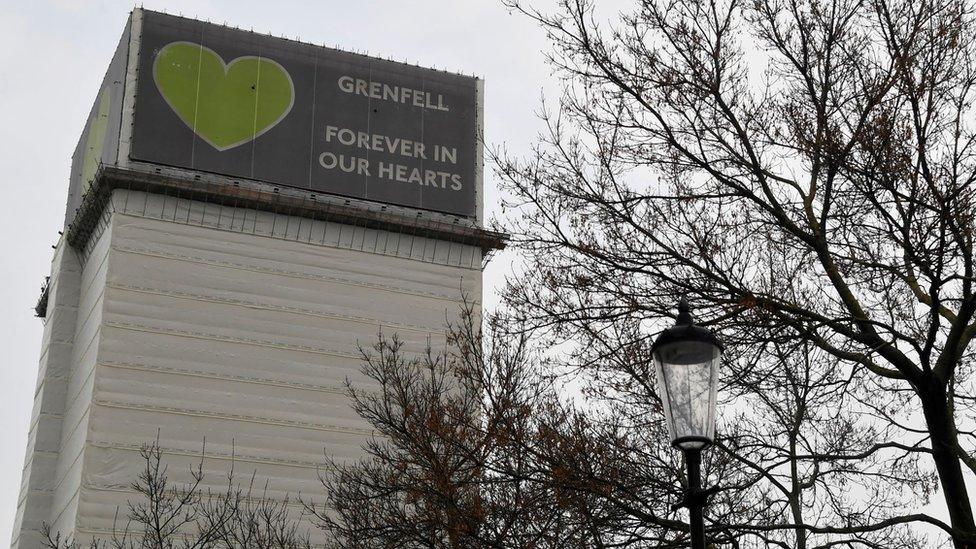
A former housing secretary has admitted to the Grenfell Tower inquiry he did not know a policy of cutting red tape had prevented government officials tightening fire safety standards.
Lord Pickles claimed building standards regulations were exempt from a policy promoted by David Cameron's government.
But under questioning he was unable to give an example of where the exemption had been specifically set out.
The fire in the west London tower block in 2017 claimed the lives of 72 people.
Lord Pickles said he took full responsibility for any failures in the housing department, which he led in the years of the Cameron coalition government between 2010 and 2015.
The inquiry into the disaster is examining what the government did to prevent construction firms from using dangerous materials on tall buildings.
Combustible cladding and insulation were a cause of the Grenfell Tower fire, and the subsequent building safety crisis affecting hundreds of thousands of flat owners.
In his second day giving evidence, Lord Pickles appeared to suggest the inquiry's senior counsel, Richard Millett QC, should speed up his questions as the peer had meetings planned for the afternoon.
He later apologised for being "discourteous" and said he had decided to cancel his meetings as "this is more important than anything I'm doing".
Lord Pickles apologises to Grenfell inquiry after outburst
A key issue for the inquiry centres on the "one in, one out" policy of the government at the time which aimed to cut the number of regulations affecting businesses.
For every new regulation introduced, another, and as time went on, another two or three, had to be removed.
In 2011 and 2012 the government decided to exempt "fire safety regulations" from the policy.
However the inquiry was shown government documents suggesting the exemption only applied to the safe management of buildings and underground railway stations.
The building regulations, and guidance designed to prevent major fires, would continue to be part of the government's approach to regulation, "not least the one in, one out approach", according to a submission to ministers in 2012.
Lord Pickles pointed to a single line in a government press release that stated "essential safety and accessibility protections will remain untouched" as evidence his department did not intend to erode safety regulations.
But asked whether he had ever seen a document in which the building regulations were specifically exempted from the "war on red tape", he was unable to give an example.
This is a highly significant issue for the Grenfell Inquiry because four government officials, working on fire safety in building construction, have given evidence that the deregulation drive was having an impact on regulations governing "life safety".
One, the fire policy specialist Brian Martin, had been warned about fires engulfing tower blocks around the world, and concerns dangerous materials were being used in Britain.
He gave evidence that tightening the regulations for England would have been "incredibly difficult" because "regulation was a dirty word" within the government.
Lord Pickles claimed the officials, whom he had never met, were making political assumptions, were poorly managed, involved in a "grudge" with a parliamentary committee and "struggling to cope" at work.
Mr Millett asked him to explain the situation and whether the former minister had been "spectacularly out of touch" with what was happening in his department.
Lord Pickles responded: "I think that would be uncharacteristically unjust of you to say that. This is an enormous department. I am utterly reliant on receiving good intelligence from my permanent secretary and director generals."
In an opening statement to this phase of the long-running public inquiry, the government apologised for "past failures in relation to the oversight of the system that regulated safety in the construction and refurbishment of high rise buildings."
Asked if he took responsibility for what had happened, Lord Pickles briefly lost his composure, saying: "I swore on the Bible. I'm a Christian. I wouldn't come here to remove responsibility. These things are important to me."
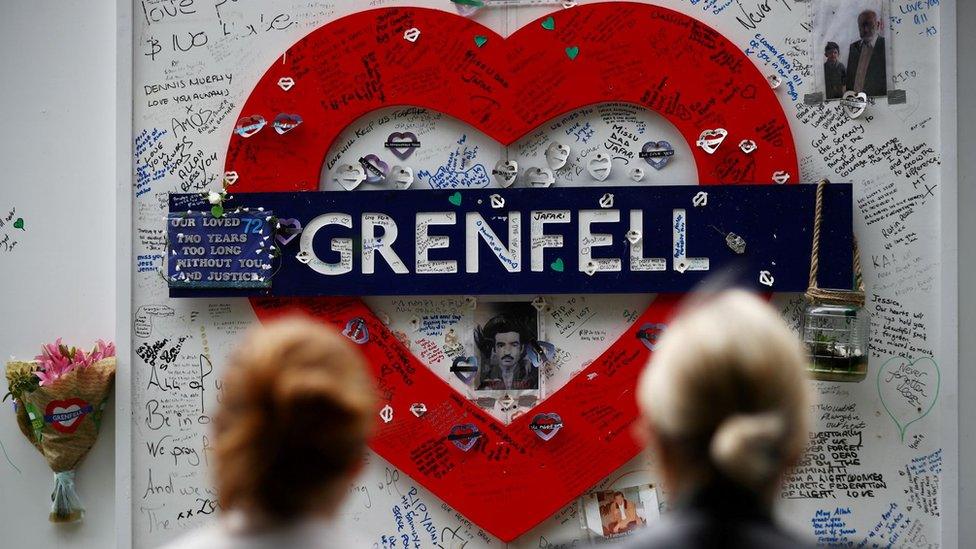
Lord Pickles' description of the fire's 72 victims as "the nameless 96 people" angered Grenfell United
In a final statement at the end of his evidence, Lord Pickles said "ultimately it comes down to the nameless 96 people who were killed in the Grenfell fire".
However 71 people died as a direct result of the fire and a further death was later linked to it. All have been named.
The statement prompted an angry response from Grenfell United, which represents many bereaved, survivors and residents affected by the fire, which said his "disrespect" had left members speechless.
"His utter disregard for what happened and to those no longer with us is horrifying, given that he had the ability as minister of housing to reform building safety," Grenfell United said.
Lord Pickles delayed improvements to the building regulations that were recommended following a previous fatal fire in south London. The changes had not been made by the time of the Grenfell disaster in June 2017.
The inquiry is coming to the end of a phase examining the role of the government and will next look at the way it handled the aftermath of the fire in west London.
It is expected to finish later this year and report in 2023.
A police investigation is also ongoing, and once the inquiry reports, is expected to recommend criminal charges to the Crown Prosecution Service.

THE INFLUENCER WHO IS A SECRET WEAPON: How a former Eurovision host is helping Ukraine's government
EVERYTHING HAS CHANGED: Brexit, Covid and other major political stories from seven turbulent years

Related topics
- Published6 April 2022
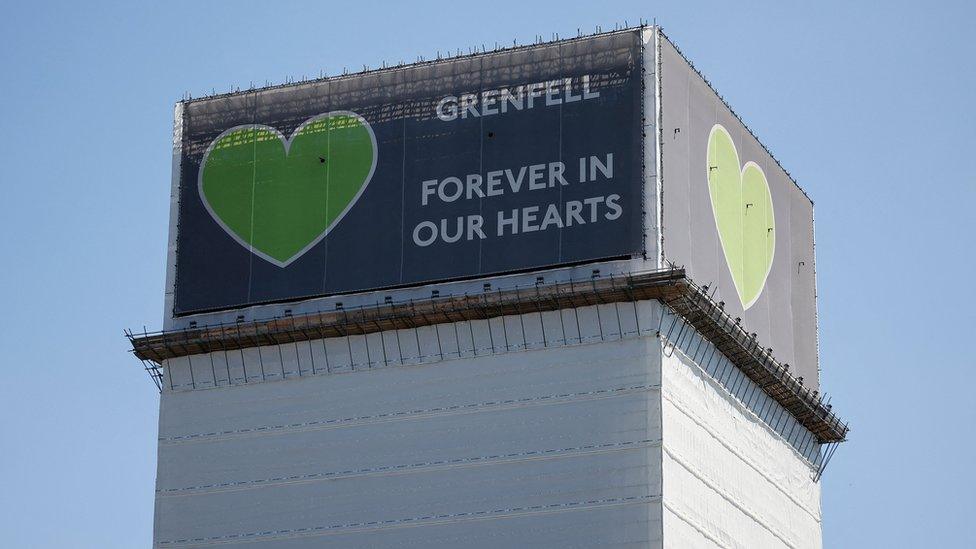
- Published5 April 2022

- Published31 March 2022
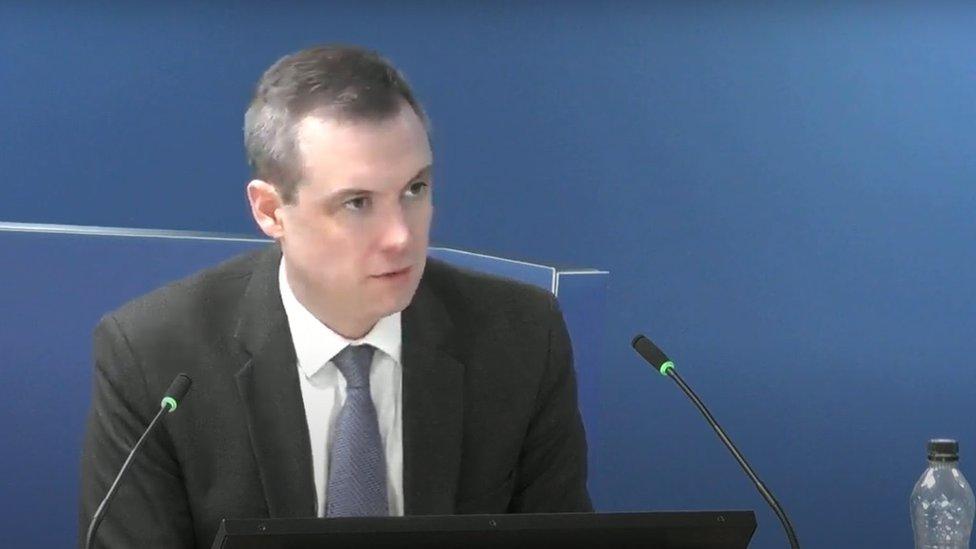
- Published14 June 2020
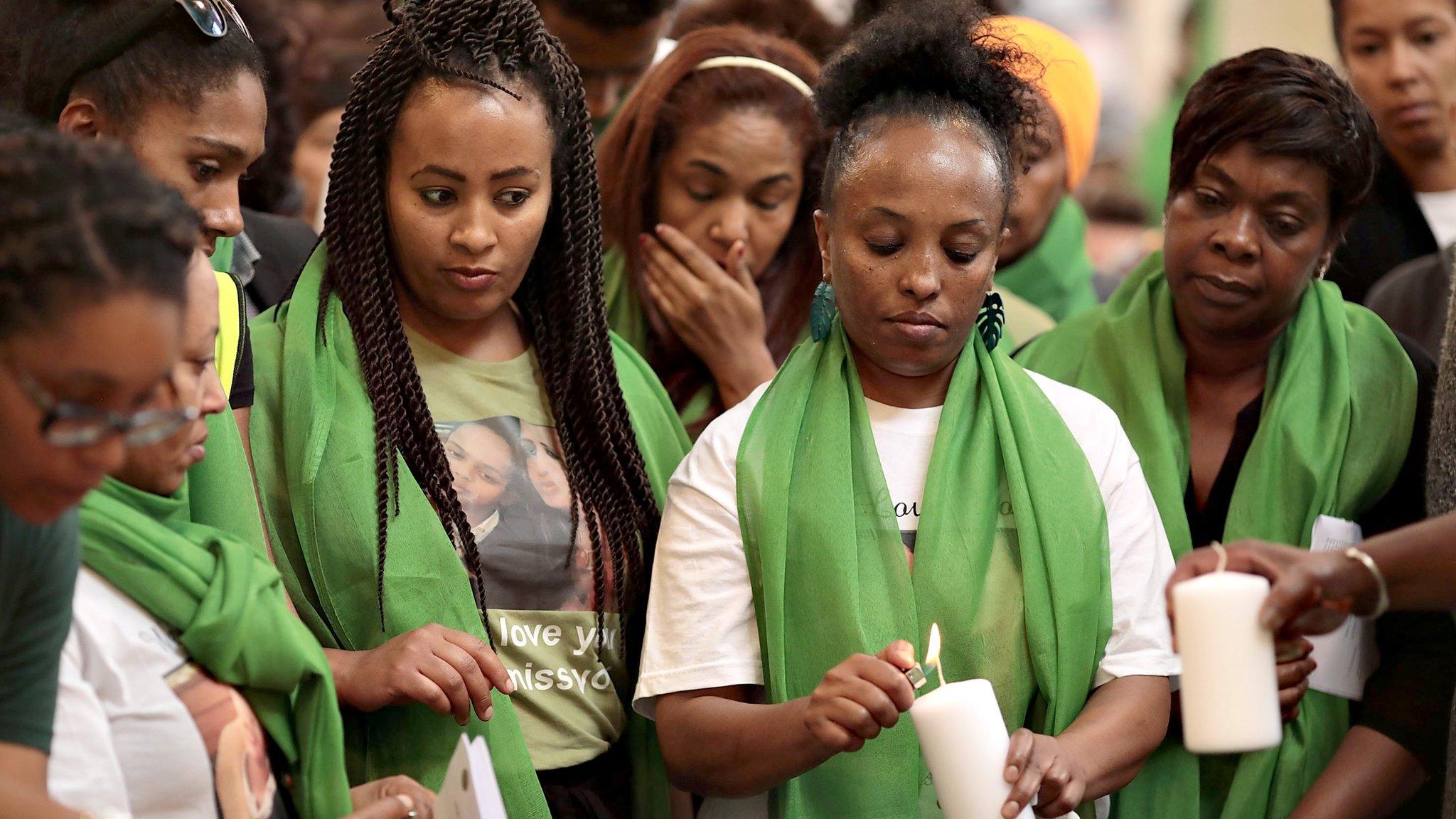
- Published18 May 2018
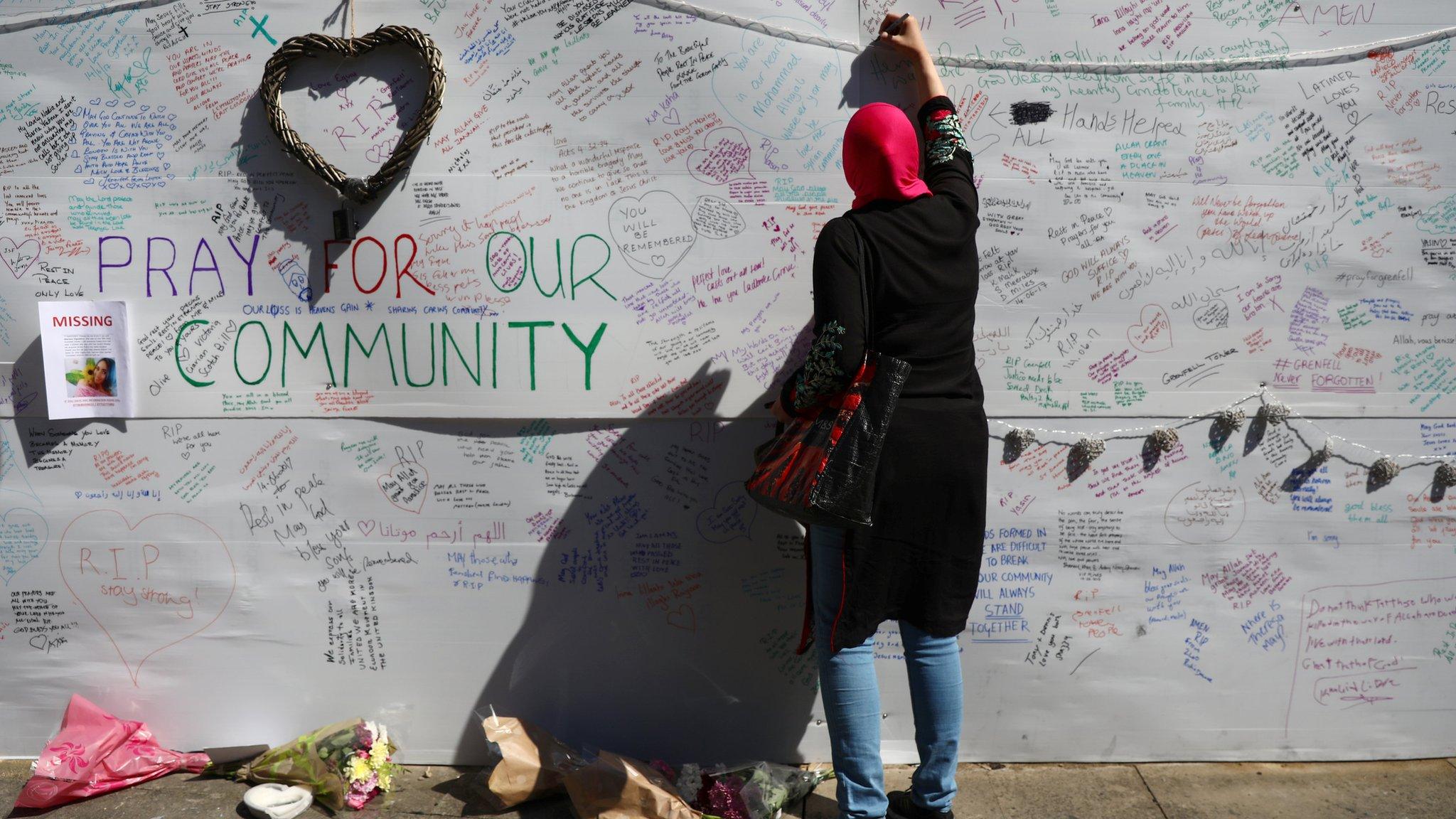
- Published30 March 2022
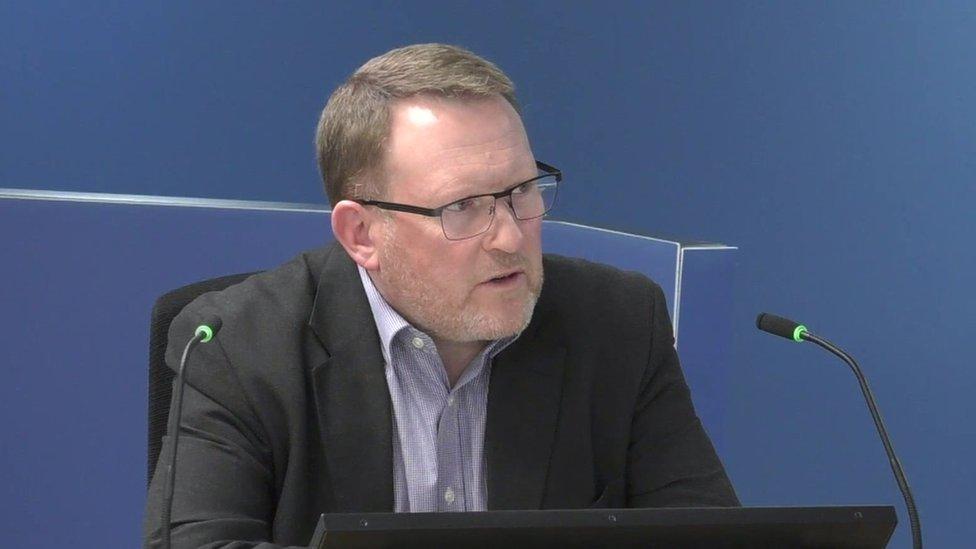
- Published30 October 2019